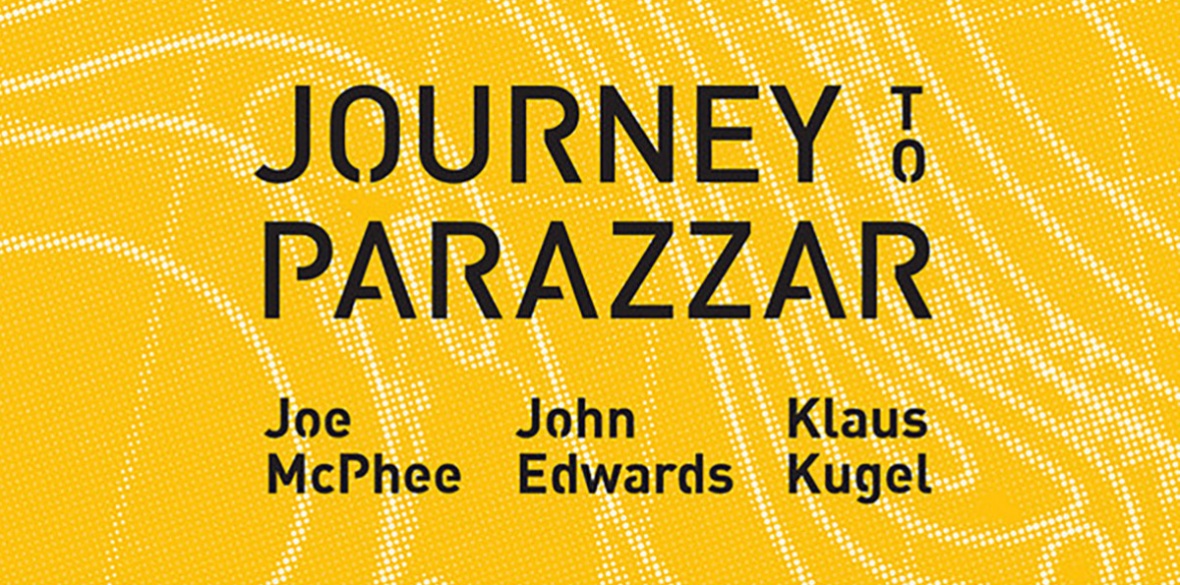This is the last article you can read this month
You can read more article this month
You can read more articles this month
Sorry your limit is up for this month
Reset on:
Please help support the Morning Star by subscribing here
Joe McPhee, John Edwards and Klaus Kugel
Journey to Parazzar
(Not Two)
Rodrigo Amado, Joe McPhee, Kent Kessler and Chris Corsano
A History of Nothing
(Trost Records)
SOUL Bar Parazzar is a jazz venue in Bruges whose name is a play on the French word for chance and lucky were the listeners who happened on this trio playing there in September 2017, at the final gig of this of Joe McPhee, John Edwards and Klaus Kugel’s European tour.
The triumvirate Journey to Parazzar consisted of saxophonist McPhee, joined by Klaus Kugel and bassist John Edwards and they begin with Re-hairing in Zaporozhye, where the record was waxed and Edwards got his bass bow rehaired, and he produces a deep flurry of springing notes as if his instrument were reborn.
McPhee soon joins him on alto sax and as Kugel pumps up the percussion the trio move ahead with an athletic pace and pulse. McPhee’s alto hollers and whines and Edwards’s solo, on the very upper reaches of his bass, almost tinkles in contradiction.
To Rush at the Wind is prefaced by more pulsating Edwards, with McPhee blowing a storm on his pocket trumpet mouthpiece. He plays a lucid brass solo before instantly switching to alto sax over Kugel’s drum volleys which palaver with Edwards’s plummeting bass. As the pace suddenly quickens, McPhee runs away with his horn and Edwards’s sawing bow creates the last, vibrating notes.
The trio remember the epochal category-busting pianist Cecil Taylor on the short, chanting Song for Cecil as McPhee gargles with his voice then howls with his horn, Kugel’s drums rattle and rumble and Edwards’s strings twang. It is brief but it is enough.
In Spring 2017, McPhee joined with tenor saxophonist Rodrigo Amado, bassist Indiana Kent Kessler and drummer Chris Corsano in Lisbon to record A History of Nothing, with Amado describing it as about “sands, rocks, flowers. It’s really about the elements.”
Above Kessler’s deep plucking and Corsano’s haunting cymbals there is an instant empathy between the two horns on opener Legacies. McPhee plays a quasi-adenoidal soprano saxophone on the title tune and his interweaving with Amado’s caustic tenor is a powerful transatlantic colloquy. Corsano’s drums are quick thunder and beneath it all Kessler’s subterranean pulse is the very heartbeat of life.
Theory of Mind 2 is a track for McPhee in which Amado expresses his impassioned lyricism, Kessler’s bass seems to take on a deep, humming life and Corsano’s drums are a force of nature. McPhee returns for Wild Flowers, his pocket trumpet pouring an intensity of scintillating breath, prefacing Amado’s stone-toned solo.
But it’s on the last track The Hidden Desert, where Amado’s elemental soundscape comes to true fruition. Kessler’s shimmering strings are a preface and McPhee’s mouthpiece bursts with gasping, choking breath before his trumpet sounds over Corsano’s eternal rustle.
And then it is Amado’s exploring horn, improvising melody as he travels through the dunes of sound, which completes another powerful musical excursion.











